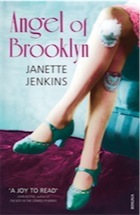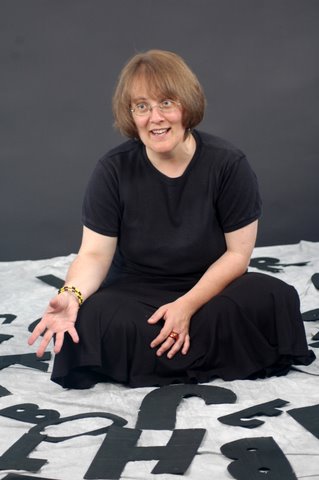- Is a writer someone who publishes books? - or someone who works with story and words to help a community explore its identity?
- Can an author's on-line writing become more important than their actual books?
- could self-publishing - maybe to a niche audiences - play a vital part in building careers of new writers?
 These were just some of the questions we tossed around in Damien Walter' fascinating talk, The Entrepreneurial Writer, offered as part of the Writing School's series on New Ways with Writing. Walter is a writer himself - of Weird & Speculative fiction - as well as a Literature Development worker and a professional blogger for The Guardian. So well placed to discuss some emerging trends in the writing economy.
These were just some of the questions we tossed around in Damien Walter' fascinating talk, The Entrepreneurial Writer, offered as part of the Writing School's series on New Ways with Writing. Walter is a writer himself - of Weird & Speculative fiction - as well as a Literature Development worker and a professional blogger for The Guardian. So well placed to discuss some emerging trends in the writing economy.With 1300 Creative Writing graduates emerging every year in the UK - and a similar no. of manuscripts appearing on the slush pile of one publishing house in that time - it may be time to review what exactly does a writer do? One answer could lie in the realm of Social Literature - where writing is about social outcomes rather than producing books. Damien gave us the e.g. of the US best-selling author Dave Eggers who in 2002 founded the 826 Valencia project in San Francisco to raise literacy amongst the Mexican population there. So a writer with a social conscience - but this also helped build his own career and profile. The same can be seen locally with poets like Lydia Towsey and Rob Gee, involved in Bright Sparks and WORD events.
Damien went to to look at the traditional divide between commercial literature and arts-subsidised literature. He told a wonderful story of the best-selling sci-fi author Neal Stephenson attending a writer's convention where another author asked him:
'So where do you teach?'
'I don't teach anywhere.'
(Pause) 'Yes, but what else do you do?'
'I'm ... a writer.'
'Yes, but - what do you DO? How do you make money?'
And so it went on. But Walter suggested that this 'never the twain shall meet' barrier was breaking down. He cited the e.g. of Graham Joyce, a highly successful fantasy author, currently writing screenplays as well as the script for the Doom 4 computer game, yet also lecturing in Creative Writing at Nottingham Trent University and winning literary fiction prizes. Walter believes the traditional market for genre fiction is collapsing with readers demanding more originality and literary technique. Commercial publishers are seeking out graduates of Creative Writing courses and universities are looking for successful commercial authors to staff their courses. Other means of authors making an income may lie with offering workshops or performances.
We turned to the advantages the new social media present for writers. Walter thought this media was changing the writer's role dramatically. It's now possible for authors or poets to go directly to an audience interested in your subject. The best-selling author Neil Gaiman - what is it with these Neil/ Neals? - has 1.5 million followers on Twitter. The 5 nominees for the Hugo Awards this year all had a huge blog following and arguably, their on-line writing is now a much bigger part of their role as writers than producing fiction. But it also sells books to a loyal and enthusiastic audience. Which led us on to the potential for new writers to find a niche audience to self-publish to, breaking ground perhaps before mainstream publishers think about taking them on.
Is that where the future-present of new media is taking us? Who knows? But this course of seminars for writers has given us a chance to take stock of an industry in the throes of enormous change. And like all change, while some time-honoured structures come tumbling down, other opportunities emerge. The The Entrepreneurial Writer, according to Walter, is looking out for these, whilst also opening up to the wider question of what are writers actually for?
See my blogs on the previous talks:
- Your Web-presence as a Writer - Will Buckingham
- Independent Publishing - Ross Bradshaw
- Online Magazines - Farhana Shaikh








